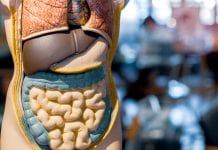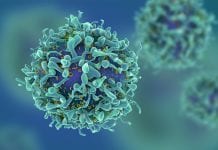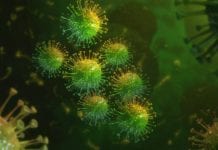Using gene expression to better understand Salmonella
The devastating Salmonella epidemic is killing around 400,000 people each year in sub-Saharan Africa, now using gene expression, scientists are closer to understanding the...
Organ transplant promoted by engineered T cells
Researchers at the University of Basel, Switzerland have discovered a molecular approach preventing organ transplant rejection.
Organ transplant rejection is a major problem in transplantation...
Chronic joint inflammation: spondyloarthritis
Researchers have found that unconventional immune cells trigger disturbed cytokine production in the chronic joint inflammation, spondyloarthritis.
Cytokine blockade of Tumor Necrosis Factor (TNF) and...
Staphylococcus aureus infection and its resistance to antibiotics
According to researchers, individuals who have acquired staphylococcus aureus infection are developing resistance to antibiotic treatment.
Staphylococcus aureus infection is a form of bacterial infection....
Leprosy: surely it was eliminated?
In light of World Leprosy Day, Geoff Prescott, the chief executive of international charity Lepra, talks us through the world of leprosy.
Geoff Prescott reflects...
Many premature deaths are preventable deaths
2.1 million of the 4.3 million cardiovascular deaths in Europe 2016, was due to poor nutrition and are preventable deaths. These premature deaths can...
The benefits of mapping oesophageal tumours
Researchers at Osaka University find that mapping oesophageal tumours that remain after chemotherapy can predict long-term prognosis and direct personalised treatment plans.
Many newly-diagnosed cancer...
Missing GP appointments occurs more for those with long-term conditions
Repeatedly missing GP appointments may indicate greater risk of death from all causes, particularly in patients with long-term conditions.
Published in BMC Medicine, new research...
Birth control methods for mosquitoes – combatting infectious diseases
University of Arizona, USA, have discovered a protein that prevents mosquitoes from hatching - could such birth control methods be developed into drugs for...
Vaccination resistance has finally been explained
Why is it so challenging to increase the number of people who get vaccinated? How does vaccination resistance remain strong even as preventable diseases...
Biomarker for colorectal cancer symptoms may be on the horizon
Johns Hopkins researchers have identified a protein biomarker involved in the development of new blood vessels that could identify colorectal cancer symptoms.
In laboratory studies,...
ADHD risk factors increase with prenatal valproate exposure
According to Aarhus University Hospital, Denmark, valproate exposure during pregnancy is associated with increasing ADHD risk factors among offspring.
In a population-based study of 913,302...
Uterine sarcoma – tackling the rare aggressive cancer
Published in Clinical Cancer Research, new insights into uterine sarcoma, a rare type of aggressive cancer, opens up novel avenues of study.
Revealed by Karolinska...
Using AI to diagnose diabetic eye disease
Researchers studying diabetic retinopathy are using artificial intelligence to support instant diagnosis of diabetic eye disease.
Diabetic retinopathy causes vision loss in adults and may...
Philosophical definition of death or the scientific version?
Should we define death strictly in biological terms? Or the philosophical definition of death? Or on the basis of severe neurological injury even when...
Stroke and heart attack survivors experience loss of work and reduced income
Heart attack survivors, or individuals having experienced a stroke or cardiac arrest are significantly less likely to be working, and if they are working,...
Adenosine deaminases function may be the molecular radar we need
Adenosine deaminases are a family of three enzymes encoded by the ADAR genes, and researchers have found that editing enzyme promotes tumour suppressor loss...
Where will the next form of flavivirus infection come from?
After collecting and comparing data with every known mammal and bird species on Earth, scientists have identified species most likely to host different forms...
E-cigarettes: misconception of vaping dangers in the UK
Research from King's College London, UK, finds smokers and ex-smokers overestimate the vaping dangers of e-cigarettes.
The Cancer Research UK-funded study assessed the knowledge about...
Egg blood metabolites associated with lowering risk of type 2 diabetes
According to University of Eastern Finland, consumption of one egg every day seems to associate with blood metabolites related to a lower risk of...
























